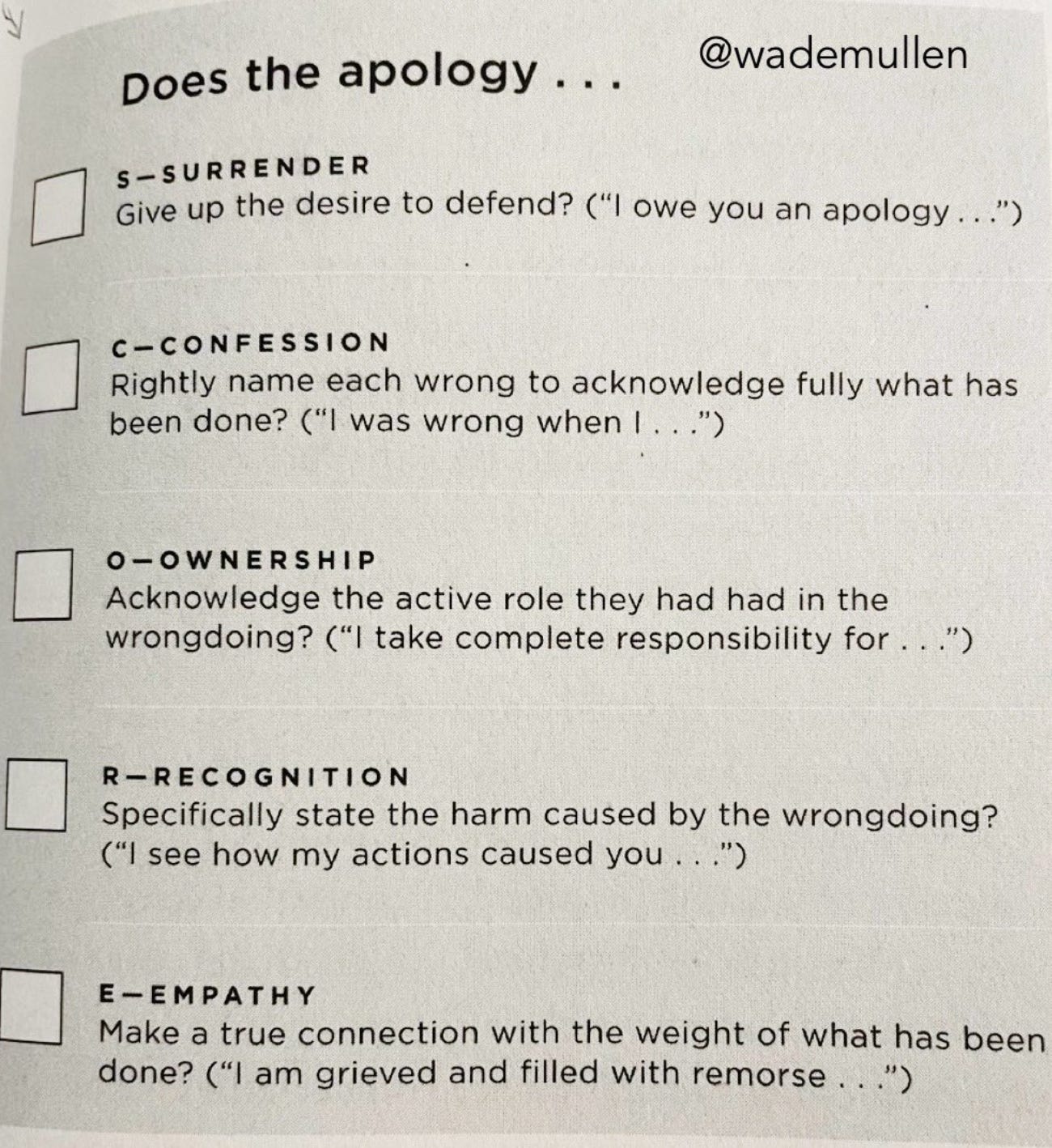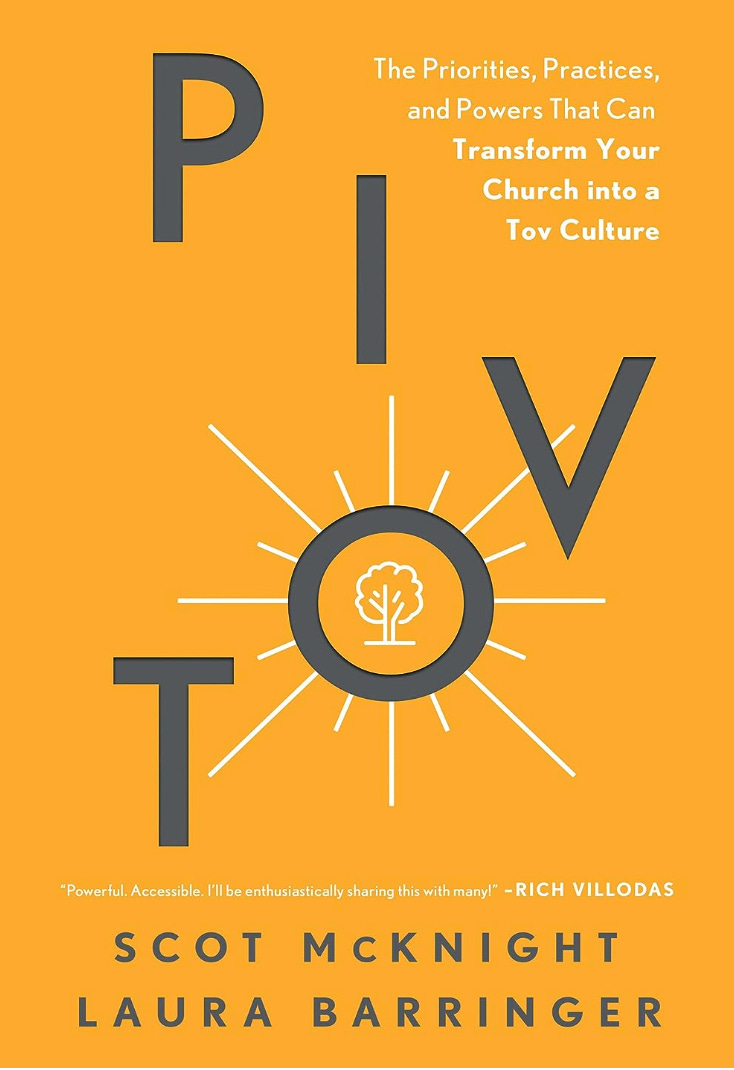From Chuck DeGroat’s Tweet:
I’ve worked with hundreds of folks over 25 years from all different stripes, backgrounds and faith traditions, and you know who has the hardest time with @wademullen’s great graphic below? Christian leaders. “Do you wish to rise? Begin by descending. You plan a tower that will pierce the clouds? Lay first the foundation of humility.” — St. Augustine
From our book A Church called TOV, which now has been taken to the next level in PIVOT.
Photo by Taylor Smith on Unsplash
Our final false narrative is what we call the fake apology, which is really not an apology at all. Fake apologies are not issued out of confession or repentance like a true apology. Instead, they:
condemn the victim,
appease the audience,
attach excuses,
and try to justify inappropriate behavior.
One false narrative begets another.
Here, we will briefly summarize the work of Wade Mullen. We recommend further reading from his post “What I’ve Observed When Institutions Try to Apologize and How They Can Do Better.” (You can chase down the citations in Tov.)
The first type of non-apology Mullen identifies is the apology that condemns the other person. “The classic example of this is the apology that says, ‘I’m sorry you feel that way.’” There is no admission of wrongdoing, only a manipulative suggestion that the other person is either too sensitive or has misinterpreted the situation.
The next “apology” is one that appeases. “It is not an attempt to do all that is necessary to right wrongs, but an attempt to offer only what is needed to quell [an] outcry.”
Third is the “apology” that comes with excuses attached. Mullen calls this an “apoloscuse.” It can take many forms, but they all seek to shift the blame or one’s perception of the evildoer. Churches may say it was “never our intention” to slander a truth teller, or “it was outside of our control.” The excuse eviscerates the apology, rendering it meaningless.
Churches may seek to justify the behavior, thereby rendering another non-apology. They may try to suggest that a leader’s sins are “not that bad,” or that the woman should have known not to be alone with a male pastor, or that her husband should have intervened.
Mullen also identifies “apologies” that are couched in terms of self- promotion. “Many public statements of apology . . . become pitches for why [the organization is] still worthy of continued support and engagement from [its] followers.” Mullen adds that organizations should never announce that they are “on the same side as the victims.” That decision, he says, is only for the victims to make.
Finally, Mullen describes non-apologies that attempt to garner sympathy for the institution. This is the “we’re hurting too” type of statement that tends to “displace the pain of the wounded with the pain of the wounder.”
Bottom line, a cheap apology is not an apology at all.
A cheap apology is a false narrative that only claims to be doing the right thing while in fact it tries to excuse, appease, or justify sin and garner sympathy for the sinner.
Above grabbed from the Chuck DeGroat tweet that grabbed the above from Wade Mullen.
Authentic apologies include surrender, confession, ownership, recognition, and empathy. “And out of that broken place,” says Mullen, “might emerge the words, ‘We are so sorry.’”








Yes, the “fauxpology” can be weaponized against victim-survivors to say, but “he apologized about (something unrelated to the abuse),” for example. When really the “apology” was “I’m sorry for how you feel” about my actions (excused by a false narrative within the apology.)” It serves the purpose of making the victim-survivors look “unforgiving” and repeats the focus on forgiveness monitoring of the victim-survivor while letting the perpetrator off the hook from true repentance, repair or Yom Kippur.
Wade’s work here has been so helpful to hold church leaders and organizations to a standard. I wish more would follow it.
Thank you Scott for sharing this. This is something I need to remember.